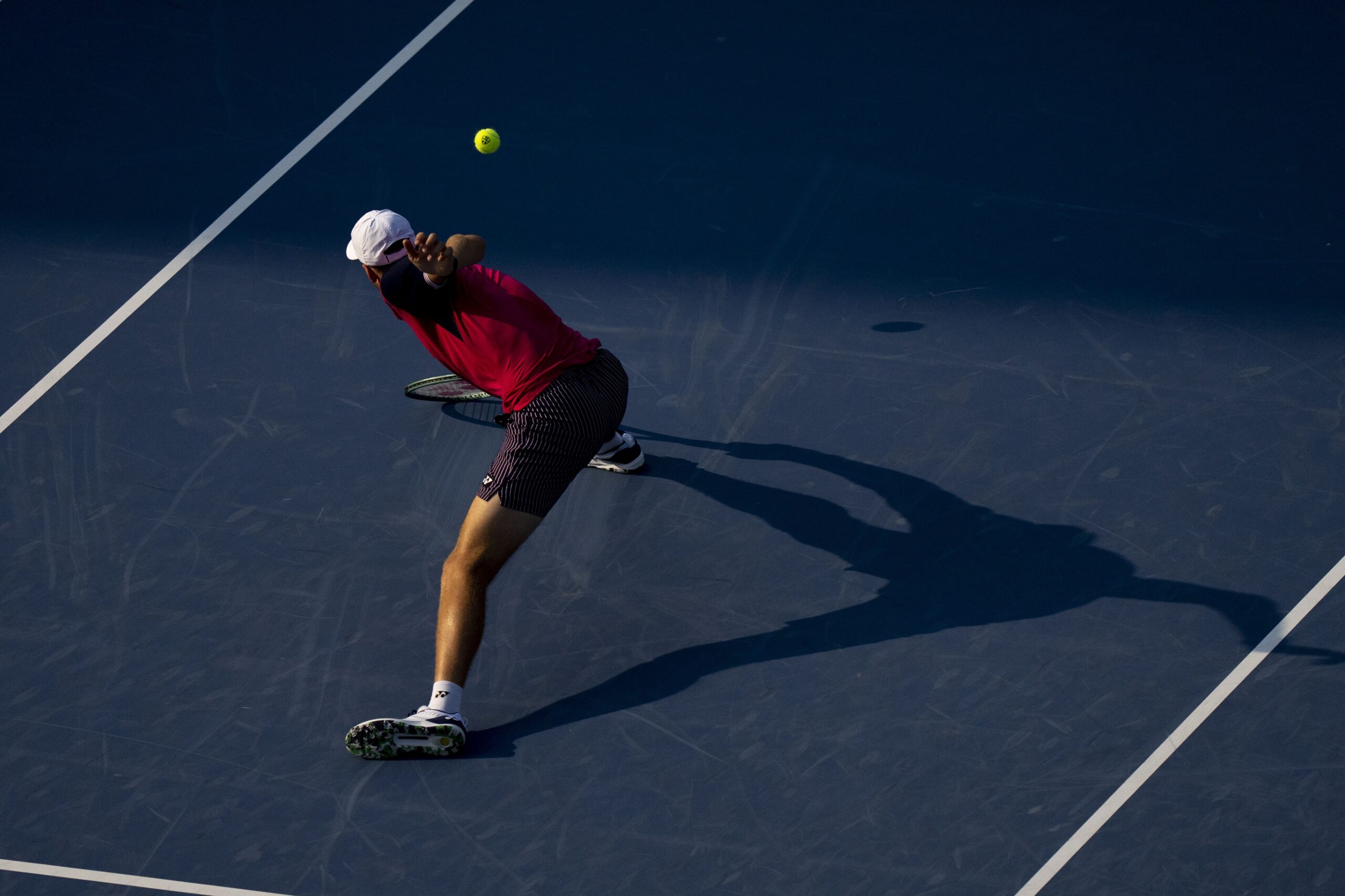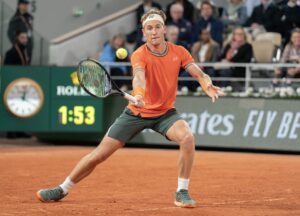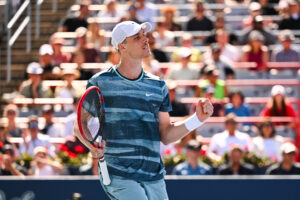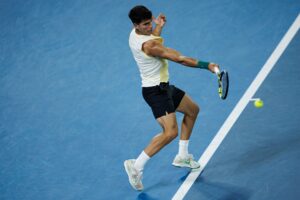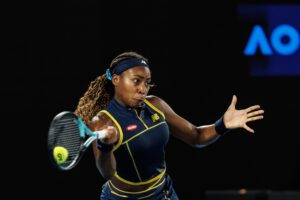After Jakub Mensik qualified and made the third round at the US Open last year (losing to Taylor Fritz on his birthday), the 18-year-old is back at the Grand Slam stage for just the second time and is already one of the biggest stories of the event. Having come through the qualifying draw again, he defeated Denis Shapovalov in straight sets in round one and will now take on Hubert Hurkacz in a mouth-watering second-round encounter.
Junior runner-up from 2022
Mensik might be competing in the men’s singles event for the first time in Melbourne, but that doesn’t mean he’s unfamiliar with the venue. Seeded fourth in the junior competition two years ago, he went all the way to one of the most legendary boys’ singles Slam finals in recent memory.
After 3 hours and 43 minutes of a thrilling contest, the Czech was suffering from full-body cramps and had to be taken off the court in a wheelchair, couldn’t even attend the trophy ceremony. Mensik’s big serve, physical build and footwork style made the many viewers around the world compare him to none other than his soon-to-be Australian Open round two opponent, Hurkacz.
Fast forward two years later and the 18-year-old is already at world #142 in the ATP Rankings. Last season he was able to grab his maiden Challenger title in Prague over Dominik Koepfer and produce that massive run at the US Open.
In his Slam qualifying debut, Mensik not only made it through to the main draw but also ended up defeating Gregoire Barrere and Titouan Droguet to make the third round, where he suffered a pretty brutal exit to Taylor Fritz on his 18th birthday. He also posted a perfect Davis Cup debut for Czechia with a singles win over Dusan Lajovic (in less than an hour) and two doubles rubbers he claimed alongside Adam Pavlasek.
Facing Nakashima twice, crushing the serve against Shapovalov
The last two months of the season were disappointing for Mensik though and the question became whether he would come back rejuvenated after the off-season. It’s fair to say that came to fruition and perhaps the best example of that was the two wins over Brandon Nakashima.
First in the Canberra Challenger semifinals and then the Australian Open qualifying, the 18-year-old defeated the former top 50 opponent by taking away the weight of shot advantage that the American usually has over players at this level. He not only matched it but had even more where it came from and found himself very comfortable on serve in this matchup.
The Nakashima rematch was the first round of Australian Open qualifying, so Mensik still needed two more wins to make the main draw. The lack of experience usually means that youngsters just can’t bring the same level to the court every day and might struggle adjusting tactically. Both Federico Gaio and Harold Mayot were actually making it pretty tough despite being considered a lesser threat than Nakashima.
Particularly against the Italian there were a few key moments in the deciding set where it seemed like Mensik might fall apart, but he found some of his most powerful forehand winners just when he needed them the most. Whether going for broke on these points was smart is a matter of opinion, but it’s the outcome that matters.
Denis Shapovalov has a career-high ranking of world #10, but now finds himself outside the Top 100 after a six-month injury. In many ways, he was actually the perfect opponent for Mensik in the opening round of the main draw. Having played just one match since his return, Shapovalov was still extremely rusty and for the most part couldn’t survive against the youngster’s booming serve.
The 18-year-old was considered the favourite of this match, but saving 8/8 break points and getting a clean straight-set 6-3 7-5 7-5 victory was still an impressive result. It also earned him the opportunity to take on Hurkacz, the opponent that he was once often compared to, particularly in the junior days.
Is Hurkacz actually a good matchup?
As mentioned earlier, young players tend to struggle to deliver a similar quality display in a few matches in a row. Still learning the ropes also means that they might have a hard time against someone who will force them to construct the rallies and build up points in the most efficient manner. While Hurkacz is a very solid retriever, this match will likely turn out to be a huge serving contest, which is a dynamic that Mensik should enjoy and won’t have the time to start feeling the pressure in.
The similarities that were once there between him and the Pole still exist in terms of the cannon delivery and the body type, but the 18-year-old has gone on to become a much more aggressive baseline player. Particularly when it comes to the freedom of accelerating off their forehands, that’s an area of his game that Hurkacz needs to be wary of, choosing his spots carefully and figuring out how to overcome the technical deficiencies of his stroke. Mensik on the other hand can inject massive power at will. Perhaps he could even use a bit of the world #9’s patience and start picking his battles, but that will come with experience.
While the young Czech will likely be the more proactive force off the ground, it’s not that he’s got much to worry about in terms of movement or taking on pace himself. Similarly to Hurkacz, he turns his stature into strength when sprinting around the court, using the extra reach to avoid falling into the stereotype of a big-hitting guy with poor footwork.
At the tail end of last year, he won a remarkable thriller in Danderyd against Hamad Medjedovic, taking on a very different role than usual and continuously absorbing the Next Gen Finals champion’s murderous cross-court forehand. With the Pole breaking his opponents just 16.7% of the time in the past 52 weeks (fifth worst score in the top 50), it feels very likely that this match will feature a tight scoreline.
Main photo credit: Albert Cesare-USA TODAY Sports


